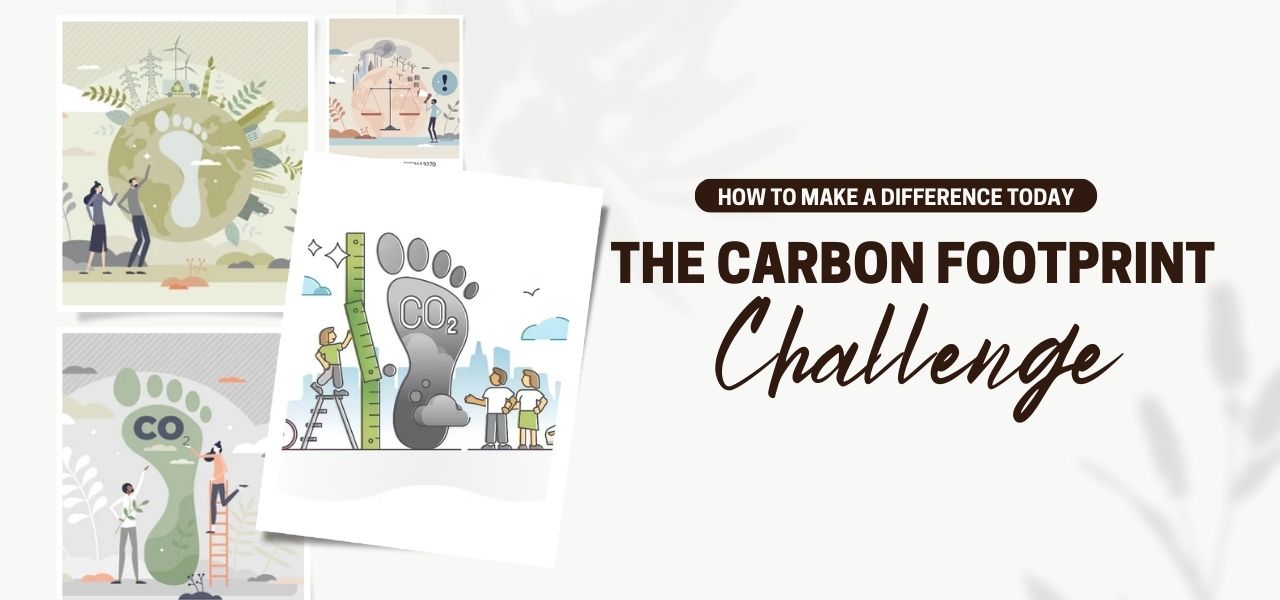The Carbon Footprint Challenge How to Make a Difference Today

Reducing our carbon footprint has become increasingly important in the face of climate change. It is a challenge that requires individual and collective action to make a significant impact. This blog explores strategies to reduce your carbon footprint, with a focus on businesses, which have a major impact on the environment.
We will highlight the importance of cutting carbon emissions and the serious consequences if we don't take action. We will also present practical ways that businesses and individuals can make a difference, emphasizing the role of innovative carbon-negative materials such as those produced by AirX.
Understanding Carbon Footprint
Carbon footprint refers to the amount of greenhouse gasses, particularly carbon dioxide, emitted by human activities such as transportation, energy consumption, and production processes. Reducing it is important because it helps to mitigate the effects of climate change and protect the environment.
Calculating carbon footprint involves measuring the amount of carbon dioxide emitted from various sources and converting it into a common unit of measurement. Major sources of it from businesses include energy consumption, transportation, and waste management. By reducing it, businesses can benefit from cost savings, increased efficiency, and improved public perception.
By understanding the sources and impact of carbon footprint, businesses can take steps to reduce their environmental impact and improve their sustainability practices. One of the key benefits is the positive impact it has on the environment. By emitting fewer greenhouse gasses, businesses can help slow down the pace of climate change and reduce their contribution to global warming.

Additionally, reducing carbon footprint can also result in cost savings for businesses in the long run, as energy-efficient practices can lead to reduced utility bills and operational costs. By calculating their carbon footprint, businesses can identify the areas where they can make the most significant impact and prioritize their efforts accordingly. This can lead to more effective and efficient strategies for reducing their environmental impact and achieving their sustainability goals.
Overall, reducing carbon footprint is a critical step towards combating climate change and protecting the environment. Businesses have a key role to play in reducing it, and by adopting sustainable practices and investing in green technologies, they can make a significant difference in the fight against climate change.
Business’s Strategies to Reduce Carbon Footprint
Businesses have a significant role to play in reducing their carbon footprint and mitigating the impacts of climate change. With the growing awareness of the importance of sustainability, more and more businesses are taking action to reduce their carbon footprint. Here are three popular strategies that businesses can use to cut their carbon footprint:
- Improving Energy Efficiency: One of the most popular ways for businesses to reduce their carbon footprint is to improve energy efficiency. This includes measures such as upgrading lighting systems, optimizing HVAC systems, and investing in energy-efficient appliances. By reducing energy consumption, businesses can cut their carbon emissions and save money on energy bills.
- Adopting Renewable Energy: Another strategy for businesses to reduce their carbon footprint is to adopt renewable energy sources. This can include installing solar panels, wind turbines, or purchasing renewable energy credits. By relying on renewable energy, businesses can significantly reduce their greenhouse gas emissions.
- Using Carbon Negative Material: Plant-based plastic is one example of a carbon-negative material that businesses can use to reduce their carbon footprint. AirX, a company that produces such plastic, has created a technology that converts crop residue into biodegradable plastic. This process removes carbon from the atmosphere and turns it into a useful material, effectively offsetting the carbon footprint of a product.
Moreover, the AirX product is not only carbon-negative but also cost-effective and efficient, with no need for significant changes to the manufacturing process. This material is also biodegradable, making it an excellent alternative to traditional plastics that can take hundreds of years to decompose.

Overall, businesses that adopt these strategies and others like them can reduce their carbon footprint while maintaining profitability. In addition, they can improve their reputation with consumers and other stakeholders who are increasingly concerned about the environment and sustainability. By taking a proactive approach to reducing their carbon footprint, businesses can position themselves as leaders in the transition to a low-carbon future.
Call to Action
Reducing our carbon footprint is crucial for our planet's health and survival. Failure to address the issue of carbon emissions will result in severe consequences, including an increase in extreme weather events, sea level rise, and loss of biodiversity. It is a global issue that requires collective action from businesses, governments, and individuals.
To make a meaningful impact, we must all take action. As individuals, we can start by making simple changes such as reducing energy consumption, using public transport, eating a plant-based diet, and supporting companies that prioritize sustainability. However, businesses and governments have a greater role to play in reducing carbon emissions.
Businesses have a significant impact on the environment through their operations, supply chains, and products. They must take responsibility and act urgently to reduce their carbon footprint. By adopting sustainable practices, investing in renewable energy, and using carbon-negative materials such as plant-based plastics produced by AirX, businesses can significantly reduce their carbon footprint and positively impact the planet.
Governments also play a critical role in addressing the issue of carbon emissions. They must create policies and regulations that promote sustainable practices and encourage businesses to invest in renewable energy and adopt green technologies. Governments should also support the transition to a circular economy, where resources are used efficiently and waste is minimized.
We must act now to address the issue of carbon emissions and reduce our carbon footprint. Every individual, business, and government has a role to play in achieving a sustainable future for our planet. We cannot afford to delay action any longer. Together, we can make a significant impact and create a more sustainable future for generations to come.
>>> Learn more: Plastic Circular Economy in Action - Innovative Solutions
Contact us
AirX is the world's first carbon-negative bio-material made from coffee grounds.
We specialize in producing bio-based composites using recycled carbohydrates derived from by-products such as coffee grounds, coconut husk, husk, and bamboo. Our goal is to promote sustainability through the use of eco-friendly materials.
We are always here to help and provide the best service possible. If you have any questions or would like to receive advice and feedback directly from our sales staff, please do not hesitate to contact us. You can reach us through:
- Whatsapp: +84 969 742 950
- Email: [email protected]
We look forward to hearing from you!

